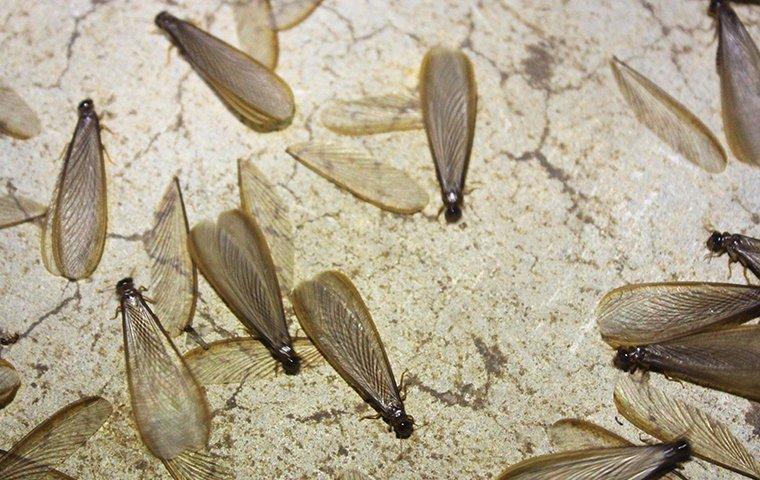You’ve probably heard about the damage that termites can do to South Bend properties, but there are a lot of termite facts that no one seems to talk about. Once you learn the truth about termites, you might unlock the key to avoiding expensive damage for good.

The Truth About Swarmers
Termites are wood-eating insects, which you probably already knew. However, when you think about termites in South Bend, you probably think about worker termites that eat the wooden portions of homes. However, a lot of the misunderstandings surrounding termites involve swarmers, which are the winged termites in charge of reproduction and creating new colonies.
Swarmers are usually only active on warm days following multiple days of rain, so summer is really the only season conducive to swarmer activity (hence, the birth of the “termite season” myth). If you think that termite season is the only time that termites can damage your house, you’re mistaken. Termite season simply refers to the best time for recolonization, but worker termites are active all year long, eating away at homes morning and night.
Since they never stop working, they can cause extensive damage over time. It takes about a year-and-a-half for termites to do damage that costs $3,000 or more to repair. The bad news is that termites can work within your walls for years without you noticing—if you don’t know what to look for. Aside from spotting swarmers flying around your yard in the summertime, there are a few other signs of termite activity that you can be on the lookout for, such as:
-
Mud tubes along outdoor foundation walls near the ground
-
Tightening around door and window frames
-
Damage to exposed wood
-
Clicking noises in the walls
If you notice these signs, you need to call in a professional pest control technician immediately. Trying to eradicate termites yourself will allow the infestation to continue in most cases.
Preventing Swarmers And Infestations
Another thing you might not understand about termites is that you might be attracting them without knowing it. While there may not be anything you can do to get rid of termites on your own, there are plenty of things you can do to reduce the factors that attract them onto your property.
Swarmers, for instance, are very attracted to light fixtures and nearby lampposts. You might not be able to do anything about the lampposts, but limiting the number of lights you have on outside at night can reduce their attraction to your property. Since swarmers aren’t very good flyers, their presence on your property suggests a nest nearby.
To reduce your chances of incurring a termite nest near your property, your main focus should be on moisture control. Since termites prefer damp soil and moistened, rotting wood, limiting moisture buildup in your yard and around the house will limit your chances of an infestation. The best moisture control methods include:
-
Placing dehumidifiers in your basement or crawlspace
-
Using gutters and downspouts to send rain runoff away from the house
-
Monitoring your pipes for leaks, even small ones
-
Mowing the lawn regularly
-
Clearing clutter out of the yard
Along with these moisture management methods, you can also create a barrier around your house made of pine straw, gravel, or rubber mulch to reduce the chances that termites will crawl into the foundation of your home as they search through the soil for food.
While all of these methods can give you a better chance of avoiding an infestation, there’s no such thing as a guaranteed prevention technique for termites that you can do by yourself. The best form of termite protection comes with professional assistance. Termishield Termite & Pest Protection has the guaranteed protection that you need to avoid thousands of dollars in damage. Reach out to us today with questions or to schedule a termite inspection. We can help!
 Customer Reviews
Customer Reviews